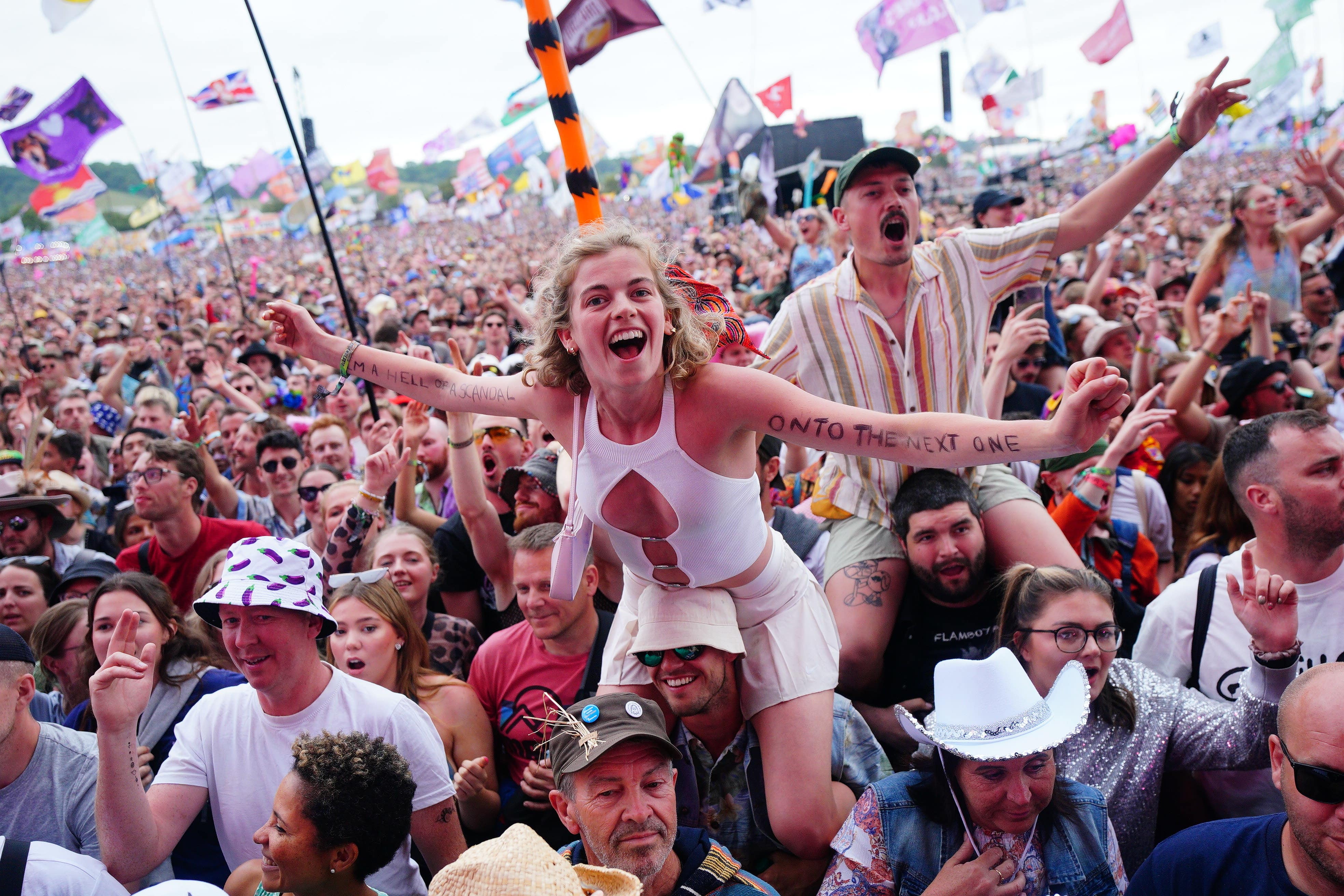Glastonbury attendees criticise organisers for ‘dangerous’ staging mishaps
Festivalgoers left frustrated by overcrowding at smaller stages
Your support helps us to tell the story
From reproductive rights to climate change to Big Tech, The Independent is on the ground when the story is developing. Whether it's investigating the financials of Elon Musk's pro-Trump PAC or producing our latest documentary, 'The A Word', which shines a light on the American women fighting for reproductive rights, we know how important it is to parse out the facts from the messaging.
At such a critical moment in US history, we need reporters on the ground. Your donation allows us to keep sending journalists to speak to both sides of the story.
The Independent is trusted by Americans across the entire political spectrum. And unlike many other quality news outlets, we choose not to lock Americans out of our reporting and analysis with paywalls. We believe quality journalism should be available to everyone, paid for by those who can afford it.
Your support makes all the difference.As Glastonbury came to a close on Sunday night, many attendees were left frustrated by overcrowding at smaller stages that led to areas being closed off and one act being forced to halt their set.
The festival is known for its large crowds, with more than 210,000 people attending this year’s instalment, which has increased by 7,000 since the festival reopened after the pandemic in 2022.
Organisers have been criticised for underestimating what crowds would be drawn by certain pop acts on smaller stages, like hyper-pop act Charli XCX at Levels on Friday night, Sugababes on West Holts stage on a prime-time Saturday slot, and Avril Lavigne on the Other Stage on Sunday.
At Charli XCX’s set, some reported that the queue to get into the area was longer than the queue to get into the actual festival, while the organisers eventually closed off the area when it reached capacity and latecomers were turned away.
On the same night, electronic duo Bicep had to pause their set on the IICON stage due to overcrowding, first asking the crowd to take a step back, before halting the show altogether to allow the crowd to disperse.
The band said: “Apologies to everyone that came to see our CHROMA AV DJ Set last night in Block 9. Due to crowd safety concerns our set was paused. We’re sorry to anyone who was disappointed by the situation night, which was completely outside our control. We hope to be able to come and play for you again soon.”
In his four-star review of the Sugababes performance on Saturday, The Independent’s critic Adam White wrote that the decision to put the Noughties pop group on West Holts was “misguided at best, irresponsible at worst”, as latecomers were urged to stay away due to overcrowding.
Reports on the ground suggested that some audience members had fainted while trying to get into West Holts for Sugababes.

Then, at Lavigne’s show, White wrote that the festival had continued to underestimate the appeal of pop nostalgia, with thousands flocking to see the “Girlfriend” musician while American singer Janelle Monae was over on the Pyramid Stage – the main stage – in the same slot.
White said Monae was “the unlucky recipient of poor planning – a genius pop star performing to a barely-there crowd. It’s not great”.
Festivalgoers have been sharing similar criticisms online, with many complaining about the scheduling conflicts for Sunday night’s closing slot, which saw American R&B star SZA on the Pyramid stage at the same time as London Grammar and Lavigne on smaller stages that were drawing larger crowds.

One attendee called this decision “an insane idea and Avril was frankly dangerous”.
They continued: “I don’t understand the logic of booking big acts on smaller stages, as much as I love this festival”
Another added: “Glastonbury need to stop putting big artists on small stages and learn how to manage a crowd. it’s dangerous. So many people fainting.”

Glastonbury Festival said in a statement to The Guardian it had “a robust, dynamic crowd management plan to protect the safety of its crowds, working closely with all of the relevant authorities, with measures put in place both in anticipation of and in response to crowd movements.
“Our plans include close monitoring and the ability to pause and stop artists where appropriate, as was the case for Bicep’s set at IICON, where a swift show-stop was managed effectively.
“Major artists wanting to perform at smaller stages with limited capacities is part of the magic of Glastonbury. This can mean some fans will be disappointed, but our crowd management plan always puts safety first.”
The Independent has contacted the festival’s organisers for comment.

Join our commenting forum
Join thought-provoking conversations, follow other Independent readers and see their replies
Comments